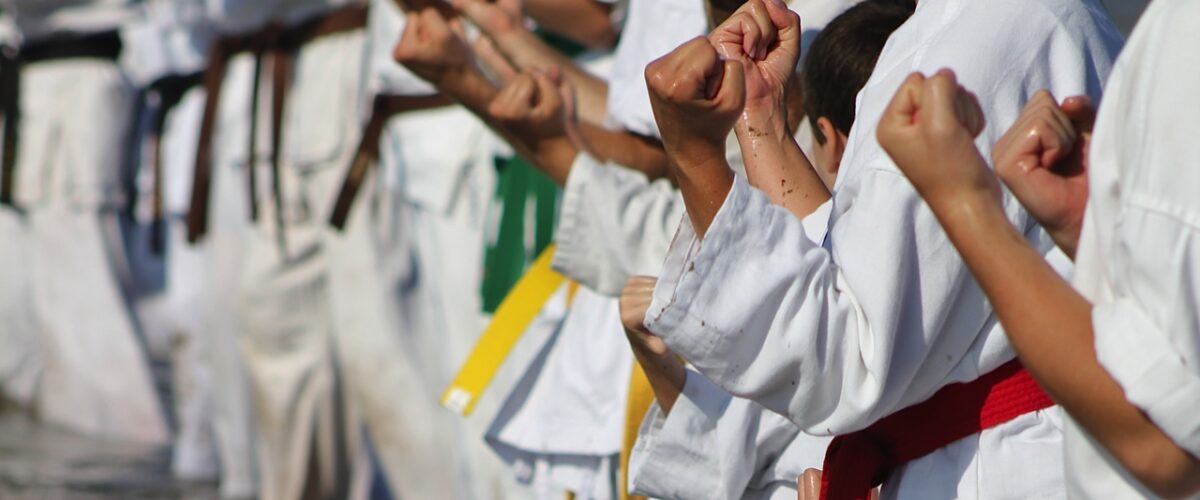Be Strong


Strong is defined in The Merriam Webster Dictionary as “having or marked by great physical power” and “having moral or intellectual power.” The first two definitions together address physical and mental power. One might say that in karate they are inextricably linked; for one without the other leaves something to be desired. Certainly strong muscles, endurance, and speed may not count for much without the mental fortitude to act when necessary, remain quiet when prudent, or to persist when tested.
In our school we study Kyokushin karate – an arduous style of martial arts known for its full-contact fighting and its mentally and physically strong participants. You don’t need to be strong to start; we make you strong. Not only will you become physically stronger and faster, you will develop a strength of mind knowing that you can achieve what you perhaps once thought impossible. You will find a strength inside yourself that grows with every training – with every obstacle overcome.
Kyokushin karate has long been known as the “strongest karate.” Is this true? Personally I think any karate style can be the strongest; as a style is nothing in and of itself. Only its practitioners can be strong or not. That said, it is generally true that Kyokushin karateka (those who practice Kyokushin karate) work hard to live up to that reputation. The highest levels of competition are an elite practice and even the humble dojo (school) fighting is not for the faint-hearted. But does that mean you cannot do it? Of course it doesn’t! Most people come to karate because they have felt weak at one point or another, because they have had doubts and fears. But those that persist and work hard transform into people that you’d otherwise never suspect of ever having felt so.
This view of karate can be deceiving at first; appearing to be violent and reminiscent of the “cage fighters” seen on television and practiced by professionals. However, our karate practice is also firmly rooted in and centered on personal development. That development entails seriously practical matters such as real-life self defense, and at the same time development of mental and spiritual fortitude. The greatest competition, after all, is against oneself, with the self of today pitted against those things about ourselves we wish to overcome or change.
“What about my kids?”
All of this strong stuff sounds good, “but what about my children?” you might ask. “Can they do this? I don’t want them getting hurt.” We absolutely understand this concern. It’s the reason for this paragraph, after all. Rest assured, students are never forced to do anything and safety is our first priority. The instructors are parents; Sensei Bob has four children that have studied karate, and we all care greatly about our students’ well-being. Students are introduced to fighting very gradually, paired with experienced instructors that are committed to providing a fun and rewarding experience.
“What about me?”
While we are on the subject, all students are introduced to fighting gradually regardless of age. And no one is forced to do anything they don’t wish to do. Of course it’s our wish to prepare every student for actual combat — real fighting. But we also realize that people come to karate for different reasons. Is it possible to study karate without any fighting at all? Yes and no. Certainly there are different levels of fighting that may be commensurate with a student’s abilities and fighting is part of our grading (belt rank) requirements. However, someone could train without ever fighting and still benefit greatly from the exercise and skills. We’ve often found that students that start without ever intending to fight find that not only are they capable, but end up liking it as well.
